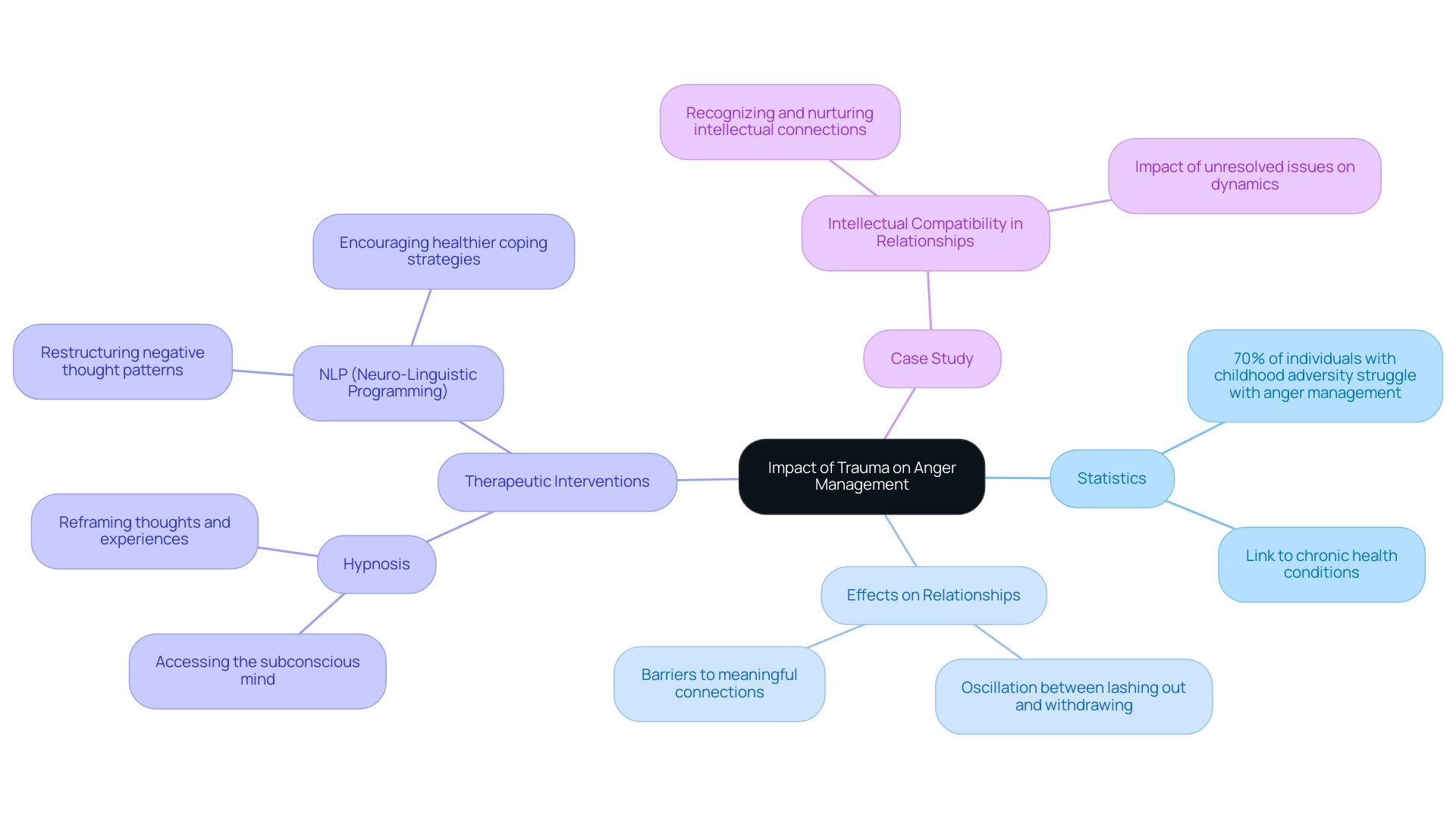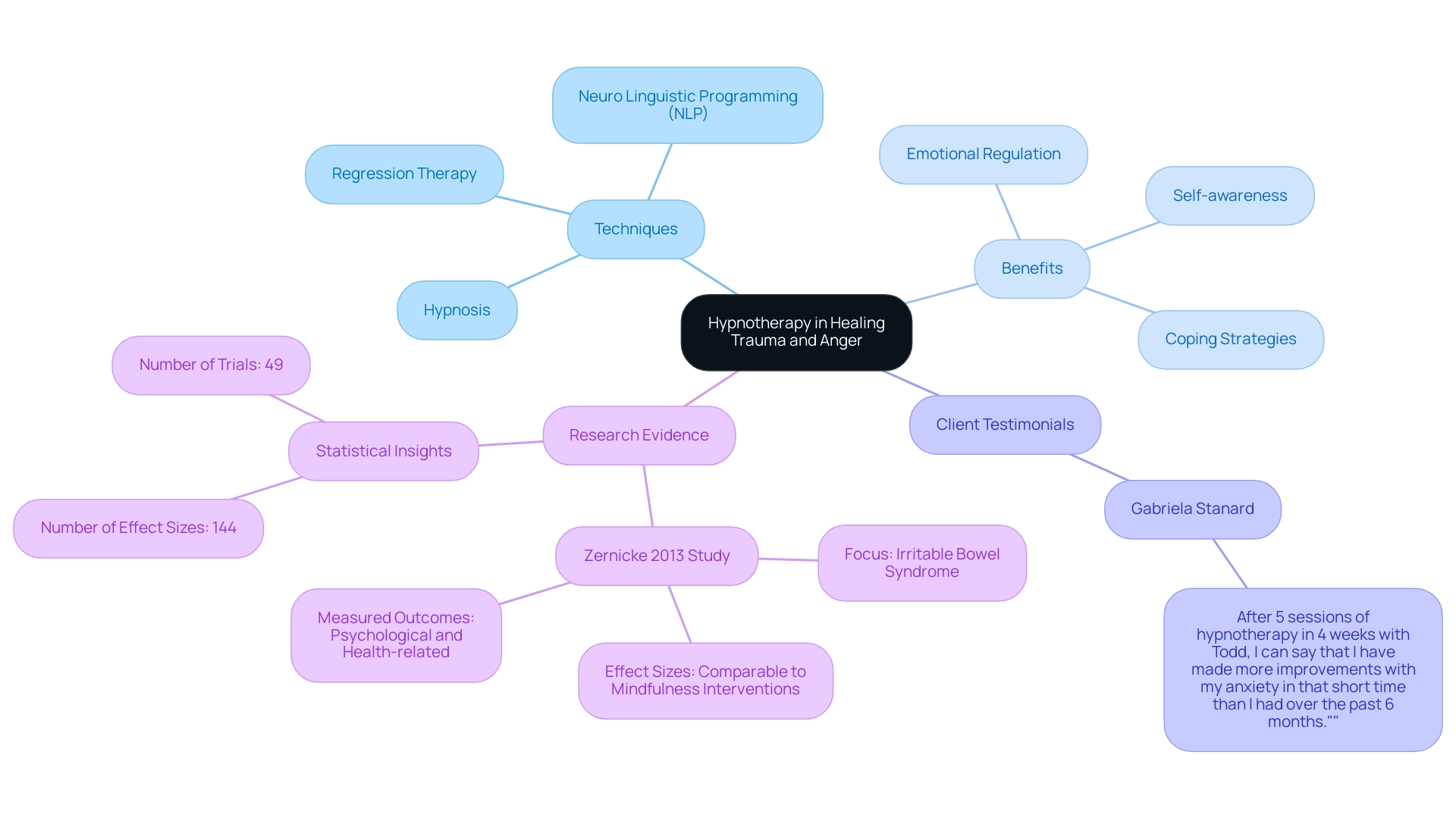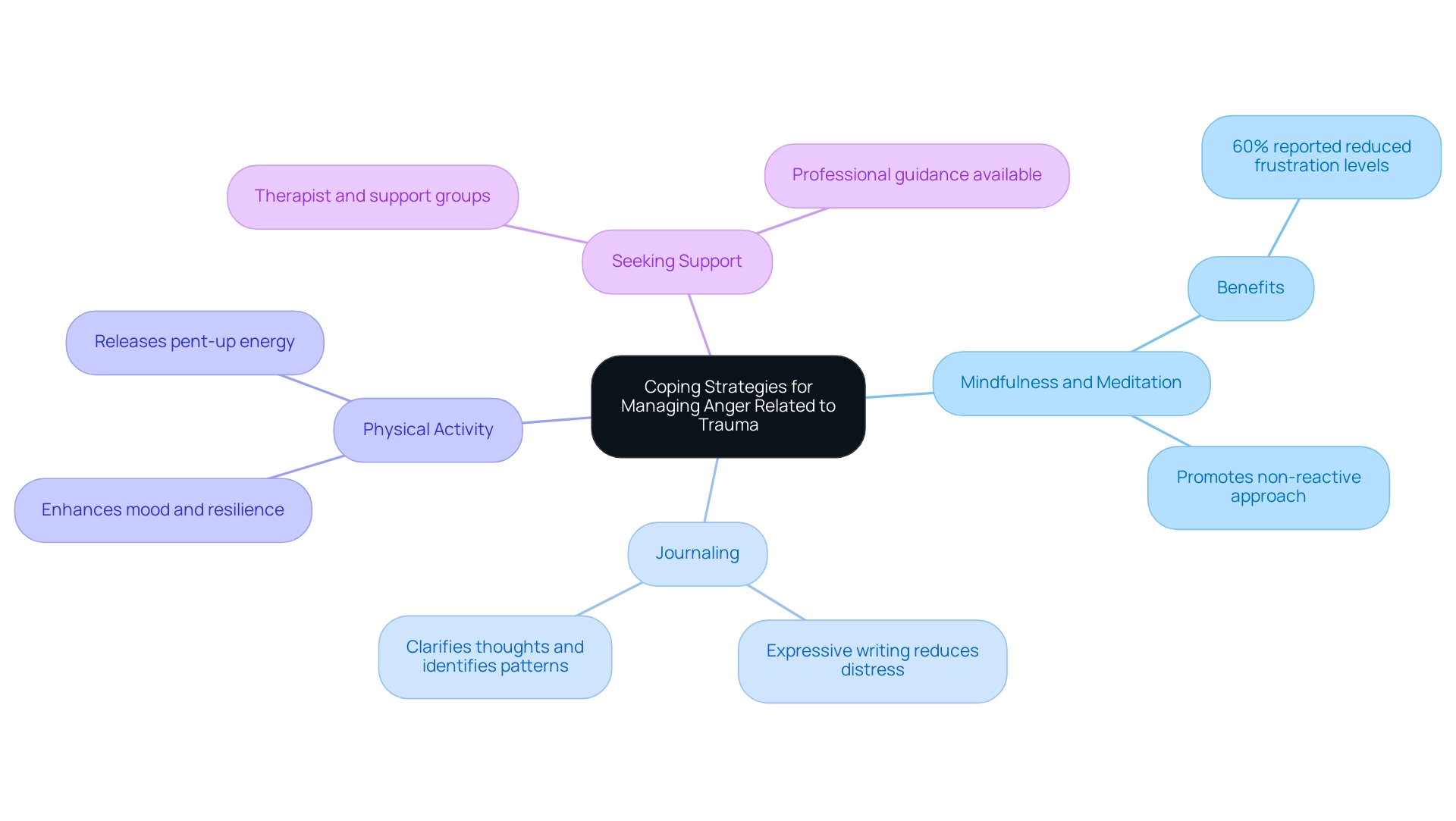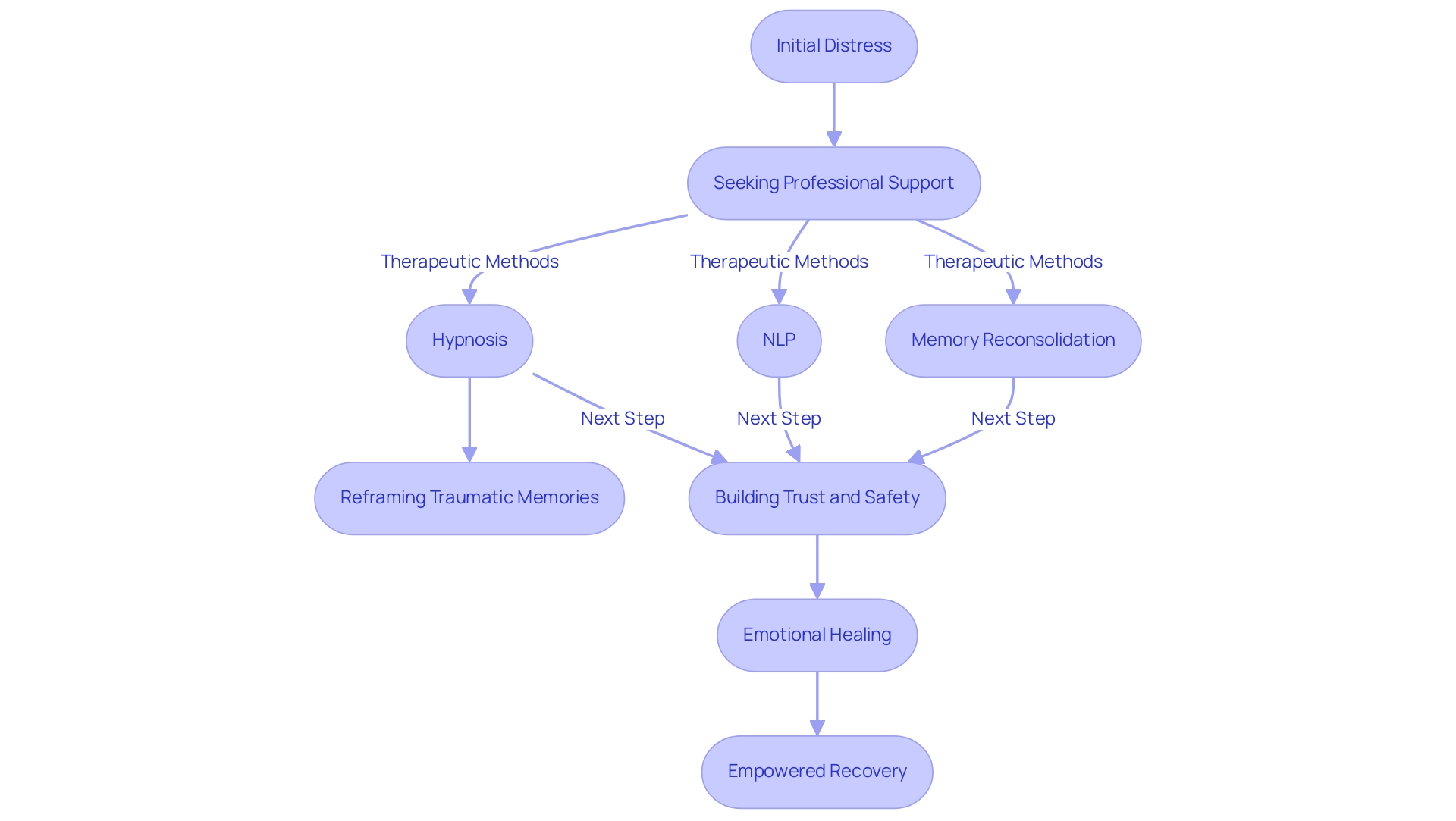PLEASE NOTE:
While the following article relates to your Google search, the services and methods at Goodwin Hypnosis may differ from those mentioned below. Since 2007, we have helped thousands of clients to overcome emotional and behavioral challenges when all else had failed. According to many of them (and their referring healthcare providers), our methods are faster than talk therapy, easier than willpower, and safer than medication. If you’re ready to resolve your issues, skip the article and visit the rest of our website, where you can learn about our unique approach, watch client testimonial videos, and discover how working with us one-on-one could be the solution you’ve been searching for.
We can help you with a variety of issues relating to emotional trauma. While we don't diagnose disorders like PTSD, we have helped hundreds of clients to overcome a wide range of traumatic experiences and their negative effects with methods that are more efficient and comfortable than CBT or EMDR. If you would like to learn more about working with us one-on-one to clear your trauma, click here.
Introduction
The intricate relationship between trauma and anger often remains hidden beneath the surface, manifesting in ways that can feel overwhelming and confusing. For many, unresolved emotional pain can lead to intense feelings of anger that seem disproportionate to everyday frustrations. This article delves into the profound connections between trauma and anger, exploring how traumatic experiences can alter emotional responses and affect interpersonal relationships.
It highlights the transformative role of innovative therapeutic approaches, such as hypnotherapy and Neurolinguistic Programming (NLP), in addressing these challenges. Through personal stories and evidence-based strategies, readers will discover effective coping mechanisms and the importance of professional support on the journey toward emotional healing and resilience. Understanding these dynamics is a crucial step for anyone seeking to reclaim control over their emotions and foster healthier connections in their lives.
Understanding the Link Between Trauma and Anger
The connection between distress and frustration is profoundly linked, frequently based in unresolved psychological suffering. Traumatic events can result in dysregulated reactions, where feelings of frustration may appear excessive in relation to the triggering occurrences. Research shows that trauma can significantly affect brain function, particularly in critical areas like the amygdala and prefrontal cortex, which are essential for emotional regulation. According to a study published in the Journal of Traumatic Stress, approximately 60% of people with PTSD report increased frustration responses. This change can increase sensitivity to perceived dangers, prompting people to respond with rage as a protective mechanism. Significantly, frustration can frequently serve to mask more vulnerable emotions such as sadness or fear—emotions that often remain unaddressed in the wake of trauma.
For instance, a case study by Asa Don Brown illustrates how recognizing personal space and boundaries can help individuals manage their frustration stemming from traumatic experiences. Understanding this intricate link is essential for those seeking to navigate their anger constructively and embark on a path toward healing.
Amber's journey is a poignant example; after struggling with PTSD and grief for two years despite trying various therapies, she found significant relief through the innovative techniques of board certified hypnotist Gina Goodwin. The Goodwin Hypnosis Zoom-based trauma recovery program utilizes customized hypnosis and NLP techniques, targeting the root causes of psychological challenges rather than merely addressing symptoms. Clients participate in personalized sessions aimed at promoting mental well-being and resilience.
As Gabor Maté insightfully points out,
To correct you, my ego is huge. I just don’t believe it, conveying the importance of acknowledging our flaws and personal truths in the healing journey.
By understanding how distress affects emotional control—similar to Amber's transformative journey with hypnosis and NLP—people can make significant progress in managing their frustration and promoting emotional health. Testimonials from clients, like Vanessa Vergnetti, who found the process enjoyable and life-changing, further illustrate the effectiveness of these methods in overcoming challenges and reclaiming a sense of control in their lives.

The Daily Impact of Trauma on Anger Management
For those struggling with unaddressed emotional pain, handling frustration on a daily basis can be overwhelming. Studies show that roughly 70% of people who have undergone childhood adversity report challenges in managing their anger reactions, frequently provoked by seemingly minor annoyances such as being caught in traffic or dealing with work-related stress. These reactions can feel disproportionate to the situation and are often rooted in a heightened state of hyper-alertness—a lingering effect of past experiences that activates the fight-or-flight response.
The impact of unresolved trauma also extends into personal relationships, where people may oscillate between lashing out and withdrawing, driven by fears of losing control. This cycle can create barriers to meaningful connections and communication with loved ones, leaving both the person and their relationships in turmoil.
As Dr. Jennifer Litner, PhD, LMFT, CST, states, 'Comprehending the origins of anger can enable people to regain their responses and cultivate healthier connections.' Recognizing these patterns in emotional responses is a crucial first step toward healing.
Through personalized one-on-one sessions that utilize innovative therapeutic interventions like hypnosis and NLP, individuals can begin to address and process their emotional wounds. In these sessions, hypnosis is used to access the subconscious mind, allowing clients to reframe their thoughts and experiences, while NLP techniques help in restructuring negative thought patterns. This approach encourages healthier coping strategies, resulting in better emotion regulation and deeper interpersonal connections.
A case study named 'Intellectual Compatibility in Relationships' further emphasizes how unresolved issues can impact interpersonal dynamics, highlighting the significance of addressing these psychological challenges for healthier relationships.

The Role of Hypnotherapy in Healing Trauma and Anger
Hypnotherapy offers a compassionate and innovative method for revealing the underlying causes of distress and the anger that often accompanies it. At Goodwin Hypnosis, we merge hypnosis with Neuro Linguistic Programming (NLP), yielding considerably improved results in healing than hypnosis on its own. By guiding people into a deeply relaxed state, skilled hypnotists can more easily "upgrade" the subconscious programming, where unresolved trauma frequently lies dormant. In this serene environment, clients can engage in guided visualization and suggestion, allowing them to reframe their traumatic experiences, ultimately diminishing the emotional intensity associated with them. Techniques such as the Rewind Technique and IEMT enable people to revisit past events in a safe and supportive manner, fostering the opportunity to process and release pent-up emotions that may have been locked away for years.
Moreover, hypnotherapy provides individuals with new coping strategies, empowering them to navigate emotional triggers with a sense of calm and clarity. This approach not only fosters healing but also cultivates a deeper sense of self-awareness and personal control over one’s reactions. Recent studies emphasize the effectiveness of hypnosis to manage anger and resolve trauma, showcasing its role in fostering resilience and mental well-being. For instance, the Zernicke 2013 study focused on irritable bowel syndrome and measured various psychological outcomes, underscoring the positive impact of hypnotherapy on psychological healing. Additionally, statistics reveal that hypnotherapy can lead to significant improvements in mood regulation, with studies reporting effect sizes comparable to other mindfulness-based interventions.
As many of our clients have shared, such as Gabriela Stanard who noted, "After 5 sessions of hypnotherapy in 4 weeks with Todd, I can say that I have made more improvements with my anxiety in that short time than I had over the past 6 months," the transformative effects of hypnosis have massively improved their quality of life. This underscores the significance of evidence-based methods in emotional recovery, reinforcing the credibility of hypnotherapy as a viable choice for those seeking to address distress and frustration. Such insights are crucial, especially as people embark on their journeys towards healing, providing them with hope and a renewed sense of agency over their lives.

Coping Strategies for Managing Anger Related to Trauma
Managing frustration that stems from trauma can feel overwhelming, but it's important to know that a multifaceted approach can pave the way toward healing. At Goodwin Hypnosis, we utilize transformative techniques like hypnosis and NLP to assist people in reclaiming control over their emotions. Here are some effective strategies to consider:
-
Mindfulness and Meditation: Participating in mindfulness activities assists individuals in identifying their triggers, promoting a non-reactive approach toward frustration. Regular meditation not only cultivates relaxation but also significantly reduces overall stress levels. Recent studies suggest that mindfulness techniques, including those integrated into our programs, are instrumental in reshaping responses to frustration, allowing for more constructive emotional management. According to a study published in the Journal of Clinical Psychology, 60% of participants reported reduced frustration levels after practicing mindfulness for eight weeks.
-
Journaling: Writing about feelings serves as a powerful outlet for expressing anger and processing complex emotions. It provides a method to clarify thoughts and identify patterns in responses, ultimately leading to greater self-awareness. Many find that journaling can transform chaotic feelings into manageable insights. Psychologist Dr. James Pennebaker observes, "Expressive writing assists individuals in facing their feelings and can result in considerable reductions in distress."
-
Physical Activity: Incorporating regular exercise into daily routines can effectively release pent-up energy and frustration. Physical activity not only contributes to mental well-being but can also enhance mood and resilience against stressors. As emphasized by the American Psychological Association, exercise can lessen feelings of irritation and frustration, reminding us that our bodies can be allies in the process of healing.
-
Seeking Support: Connecting with a therapist or participating in support groups creates a safe environment to explore feelings of anger and distress. Goodwin Hypnosis provides a Zoom-based, online emotional recovery program that offers professional guidance through our expert resolution program, invaluable in developing customized coping strategies that align with personal experiences. Remember, it’s perfectly okay to ask for help, and support is always available. As mental health advocate Dr. Tara Brach emphasizes, "Reaching out for support is a courageous step towards healing."
By integrating these strategies into daily life and considering the benefits of hypnotherapy as part of a holistic treatment approach, people can gradually reclaim control over their emotions and embark on a meaningful path toward healing. Each step taken is a testament to resilience, and it is essential to recognize the progress made along the way. Additionally, understanding the prevalence and causes of anxiety, such as low self-esteem or traumatic experiences, can further enhance the effectiveness of these strategies and our therapeutic offerings.

The Importance of Professional Support in Healing Trauma
Recovering from distress and effectively handling the frustration that frequently accompanies it is a complex journey, significantly enriched by the presence of professional support. Practitioners skilled in trauma-informed care, including Board Certified Hypnotists Todd Goodwin and Gina Goodwin, provide vital insights and techniques customized to the unique requirements of people navigating their psychological landscapes. Their one-on-one sessions utilize hypnosis, NLP, and memory reconsolidation techniques to assist in resolving psychological trauma arising from various issues, including stress, anxiety, and even obesity, as demonstrated in the transformative journey of clients like Jane, who overcame compulsive eating by reframing traumatic memories.
Crystal M. Hollenbeck, Ed.D., LMHC, emphasizes the profound effects of trauma on psychological well-being, stating that results indicate betrayed partners experience intense frustration, with 84% reporting their frustration is more intense than at any other time prior to discovering betrayal. This highlights the necessity for professional support in addressing such complex emotions. Engaging with a therapist creates a safe and supportive environment for clients to explore their feelings without fear of judgment, fostering a crucial relationship built on trust that promotes healing.
Recent studies, such as the Betrayal Trauma Survey involving 297 participants, reveal that 83.5% of respondents remain in relationships with their betrayers despite their experiences of betrayal, underscoring the importance of professional support to address emotional issues and empower individuals to reclaim their lives. Through trauma-informed therapy, which includes specific methodologies like hypnosis to access and reframe traumatic memories, clients can build healthier emotional foundations, enabling them to navigate their paths toward recovery with confidence and resilience. The World Health Organization's recent inclusion of Compulsive Sexual Behavior Disorder in the International Classification of Diseases further underscores the need for trauma-informed care that addresses the complexities of anger and trauma in therapeutic settings.

Conclusion
Understanding the intricate connection between trauma and anger is essential for anyone seeking to navigate their emotional landscape. Trauma can significantly alter emotional responses, leading to disproportionate anger reactions that affect daily life and relationships. Through innovative therapeutic approaches like hypnotherapy and Neurolinguistic Programming (NLP), individuals can uncover the root causes of their anger, allowing for meaningful healing and emotional regulation.
Personal stories, such as those of Amber and Gabriela, highlight the transformative impact of these methods, offering hope to those who have struggled with unresolved trauma.
Implementing effective coping strategies, such as mindfulness, journaling, and physical activity, can further empower individuals on their healing journey. Recognizing triggers and practicing self-care fosters resilience and paves the way for healthier emotional responses. Additionally, professional support plays a crucial role in this process, providing a safe environment for exploration and growth.
Engaging with trained therapists ensures that individuals receive tailored guidance, reinforcing the importance of addressing both trauma and anger comprehensively.
Ultimately, reclaiming control over emotions is a journey that requires patience and commitment. By understanding the links between trauma and anger and utilizing the right tools and support, individuals can embark on a path toward emotional healing, fostering healthier connections and a renewed sense of self. Each step taken toward healing is a testament to resilience, encouraging individuals to embrace their journey with hope and determination.




